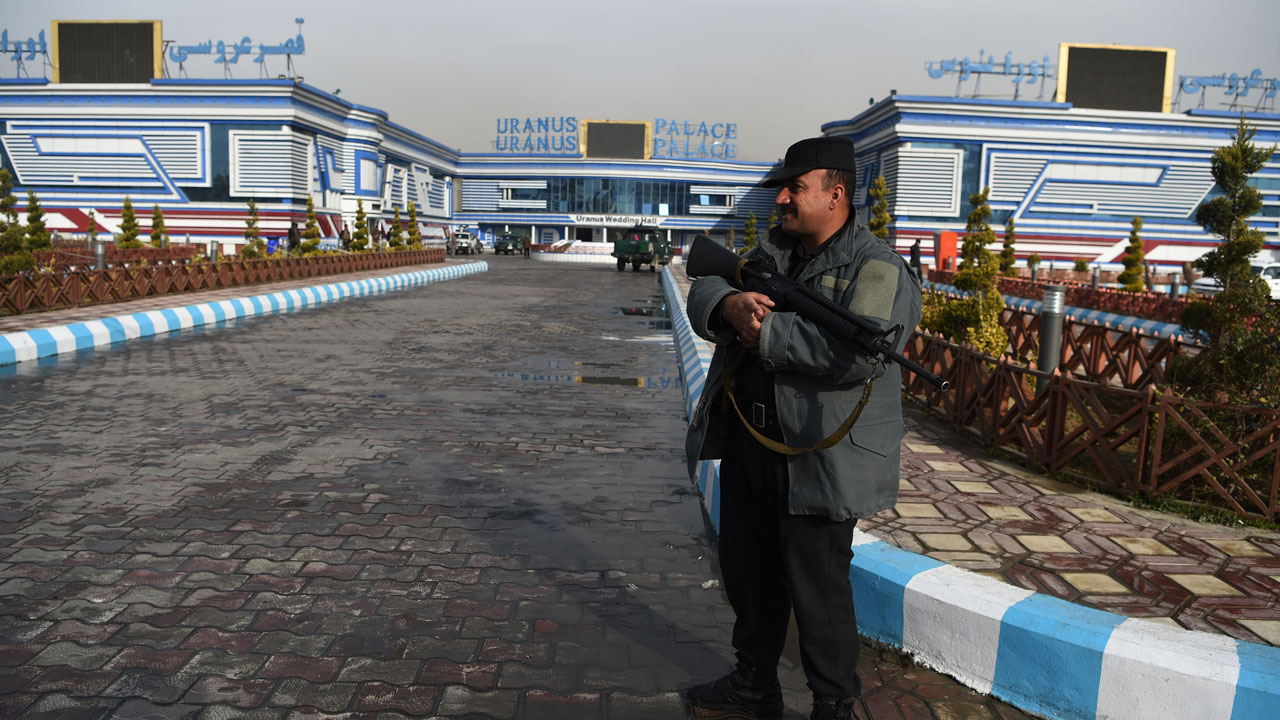
Scattered around him were the bloodied bodies of turbaned men who had taken the full force of the suicide blast and probably saved his life.
“It was absolute horror, people dead and wounded, covered in blood and pieces of flesh,” Fareed, 40, told AFP on Wednesday as he lay in a hospital bed with leg and shoulder injuries.
“My friend and his little son were also next to me, covered in blood and not moving.”
At least 55 people were killed and 94 wounded when the bomber blew himself up in the middle of the banquet hall at the Uranus Wedding Palace on Tuesday evening — one of the deadliest attacks in Afghanistan this year.
A video posted on social media purportedly filmed by one of the hundreds of attendees showed a large gathering of men listening to a recitation of the Koran before an explosion triggered pandemonium.
On Wednesday morning, as cleaners prepared the multi-storey venue for more events, bloodied turbans, sandals, overturned chairs and broken glass still littered the cavernous room where the massacre happened.
The attack drew widespread condemnation in Afghanistan and abroad, with the United Nations describing it as an “atrocity”.
US ambassador to Kabul John Bass said he was “sickened and deeply saddened” by the bombing, while the European Union delegation to Afghanistan said the explosion was “an attack on all of us, religious or not, who value freedom”.
Afghan President Ashraf Ghani declared Wednesday a national day of mourning for the victims of the attack, which he described as an “unforgivable crime”.
Finger of blame
There was no immediate claim of responsibility, though the Taliban were quick to condemn the blast. The Islamic State group, which has claimed most suicide attacks in Kabul this year, has not issued a statement.
Chief Executive Abdullah Abdullah, Afghanistan’s equivalent of prime minister, pointed the finger of blame at the Taliban.
“Whether they deny it or they don’t, they have created that sort of an environment, they are responsible for the violence,” Abdullah told AFP in an interview in Paris.
Security at the wedding hall had included a body search by an armed guard followed by physical checks by several religious students, said Obaidullah, a survivor who suffered multiple injuries to his face and body.
It is not clear why the religious scholars were targeted on one of the holiest days in the Islamic calendar.
While Muslims around the world celebrate the Prophet Mohammad’s birthday, some fundamentalists criticise the events as heretical innovations in Islam.
Most of the people at the gathering were Sufis, a mystical branch of Islam, said Mehrab Danish, an adviser to the religious affairs minister.
“But it is too early to say they were targeted because they were followers of Sufism,” he cautioned.
Sectarian militants in Pakistan have long targeted Sufis, but such attacks on the group are rare in Afghanistan.
[ad unit=2]



